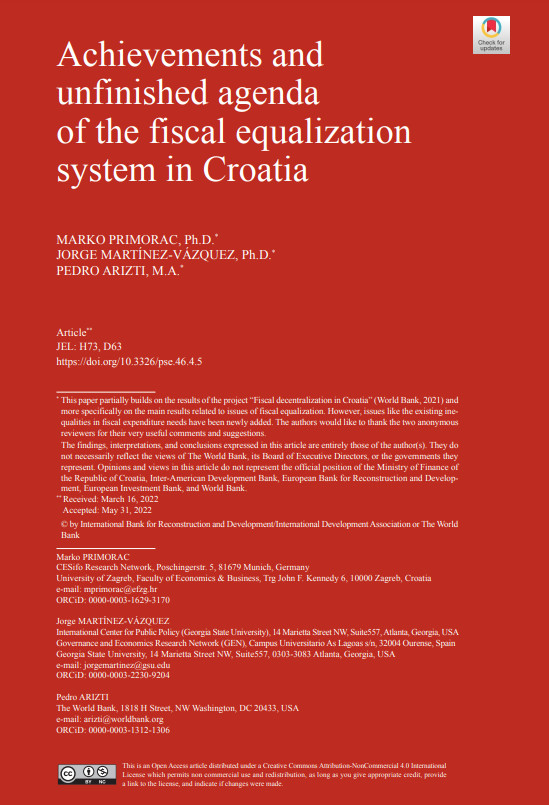Achievements and unfinished agenda of the fiscal equalization system in Croatia
DOI:
https://doi.org/10.3326/pse.46.4.5Keywords:
equalization transfers, fiscal capacity, expenditure needs, intergovernmental fiscal relations, CroatiaAbstract
Revenue sharing arrangements and the fiscal equalization system in Croatia have long been perceived as inadequate and ineffective. The reform of personal income tax sharing implemented in 2018 was accompanied by a new fiscal capacity equalization system. To date the effects of these reforms have not been empirically analyzed. In addition, the impact of the omission of differences in expenditure needs in the new formula has not been adequately analyzed either. This paper aims to fill those gaps by analyzing the existing disparities in fiscal capacity and expenditure needs across subnational governments in Croatia, testing the effectiveness of the current fiscal equalization mechanisms. Using Gini coefficients and other inequality measures we confirm that the new fiscal equalization does reduce disparities in per capita fiscal capacity. However, its equalizing effectiveness regarding expenditure needs arising from decentralized functional responsibilities remains overall rather weak.

Downloads
Published
Issue
Section
License
Copyright (c) 2022 Marko Primorac, Jorge Martínez-Vázquez, Pedro Arizti

This work is licensed under a Creative Commons Attribution-NonCommercial 4.0 International License.








